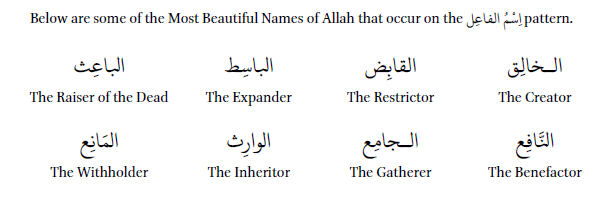READING:
Thus far, you’ve focused primarily on letters, their pronounciation, connections, as well as various markings and lengthening through vowels. The emphasis going forward will be on words. We will start with simple words and then expand to longer words. Simple words are normally three letters, given most Arabic words have a three-letter root.
In this lesson, we will practice reading words with past-tense verbs that are in singular masculine form, given these are quite basic. The first letter will always be fathah, and the last letter will always be fathah. The middle letter can be a fathah (as we will cover in Lesson 1), or a kasrah (which we will be practiced in Lesson 2).
Past tense Verbs with 3 Fathah in the middle (add more verbs to practice reading, preferably from 1A). note to students that they don’t need to learn the vocabulary, make meaning light gray
Read many verbs with fatha in middle root to practice basic word reading. selective ones highlight meaning.
One of the most exciting parts of learning Arabic are learning the patterns. These patterns will be studied extensively thoughout the Fawakih journey, and assist in learning vocabulary and unlocking meanings from various combination of letters. Whereas you have focused thus far in your journey on letters, we will be focusing more on combining letters and forming words going forward.
The first pattern we want to introduce you to is the doer pattern. It is a simple pattern which you may have come across before, and you also probably know someone named after one of these patterns (for example, “Khalid”, “Sajid,” “Shakir,” among others)! Can you think of other names that follow this pattern?
In this pattern, you add an alif after the first of the three letters of a root word. This makes the first letter slightly long, as it is a madd (elongation). Read the words below and try to formulate them with other root combinations.
We will be covering the Names of Allah more fully in a future lesson, but here are some examples of the Names of Allah that follow the doer pattern. Please use these to practice your reading! You do not need to memorize this vocabulary, but they are helpful to familiarize yourself with these Names and notice them when you are reading the Quran.





